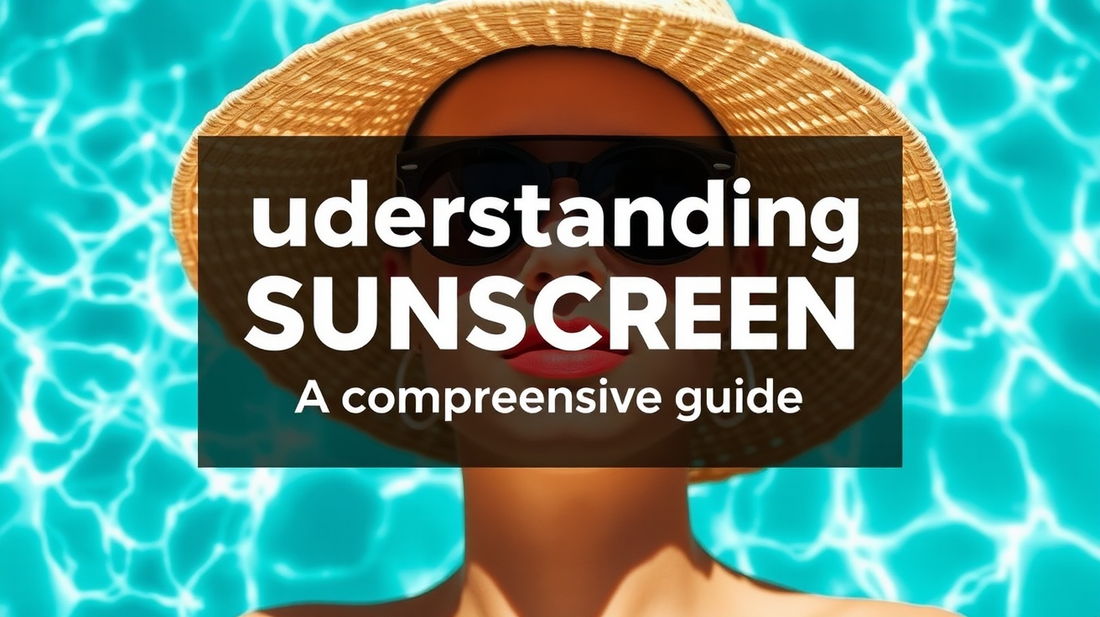Sunscreen, also known as sunblock or suntan lotion, is a topical product designed to protect the skin from the harmful effects of ultraviolet (UV) radiation from the sun. In this guide, we'll explore what sunscreen is, why it's important, how it works, and how to choose and use it correctly.
What is Sunscreen?
Sunscreen is formulated to shield the skin from UV radiation, which consists of two main types:
- UVA Rays: These rays penetrate deeper into the skin and are primarily responsible for premature aging.
- UVB Rays: These rays affect the outer layer of the skin, leading to sunburn.
Both types of UV exposure can increase the risk of skin cancer over time. Sunscreen is essential for maintaining healthy skin, especially for those who spend time outdoors.
Should You Use Sunscreen?
Absolutely! Whether you're heading to the beach, going for a walk, or even sitting by a window on a sunny day, UV rays can still reach your skin. They are present even on cloudy or cool days and can penetrate glass windows, causing harm indoors. Daily use of sunscreen provides continuous protection.
Why Should Sunscreen Be Used?
Using sunscreen helps to:
- Prevent Sunburn: Protects against painful sunburns.
- Reduce Premature Aging: Minimizes signs of aging caused by UV exposure.
- Lower Skin Cancer Risk: Decreases the likelihood of developing skin cancer.
- Maintain Even Skin Tone: Helps prevent dark spots and discoloration.
How Does Sunscreen Work?
Sunscreen functions by utilizing either physical or chemical filters to protect the skin:
-
Physical Sunscreens: Contain active mineral ingredients like zinc oxide or titanium dioxide. These minerals create a physical barrier on the skin, reflecting UV rays away.
-
Chemical Sunscreens: Contain ingredients like avobenzone, oxybenzone, or octinoxate that absorb UV radiation, convert it into heat, and release it from the skin. They typically have a lighter texture and absorb more easily.
Both types are effective, and your choice depends on your skin type and preferences.
Which Sunscreen Should You Use?
When choosing a sunscreen, consider the following:
-
SPF Level: The Sun Protection Factor (SPF) measures how well the sunscreen protects against UVB rays. Dermatologists recommend using at least SPF 50, which blocks 97% of UVB rays. If you have sensitive skin, opt for a higher SPF.
-
PA Rating: This rating system measures UVA protection. "PA" stands for "Protection Grade of UVA," with plus signs indicating strength:
- PA+: Least protection
- PA++: Moderate protection
- PA+++: High protection
- PA++++: Extremely high protection
How to Use Sunscreen Correctly
To maximize the effectiveness of your sunscreen, follow these tips:
-
Apply Generously: Use about one ounce (a shot glass full) for your entire body. For your face, a nickel-sized amount is sufficient.
-
Timing is Key: Apply sunscreen about 15–30 minutes before stepping outside to allow it to absorb into the skin.
-
Reapply Regularly: Sunscreen wears off, especially if swimming or sweating. Reapply every two hours, and more often if you are active or in the water.
-
Don't Forget Vulnerable Areas: Ensure you cover often-neglected areas like the ears, back of the neck, and tops of the feet.
-
Layer with Makeup: If you wear makeup, apply sunscreen first and allow it to absorb fully before applying foundation. Remember, foundations with SPF should not be your sole form of sun protection.
Conclusion
Incorporating sunscreen into your daily skincare routine is one of the most important steps you can take for your skin’s health and appearance. By selecting the right sunscreen for your skin type and applying it properly, you can effectively protect yourself from sunburn, premature aging, and even skin cancer. Make sunscreen a non-negotiable part of your routine, whether you’re enjoying the sun or simply running errands!

